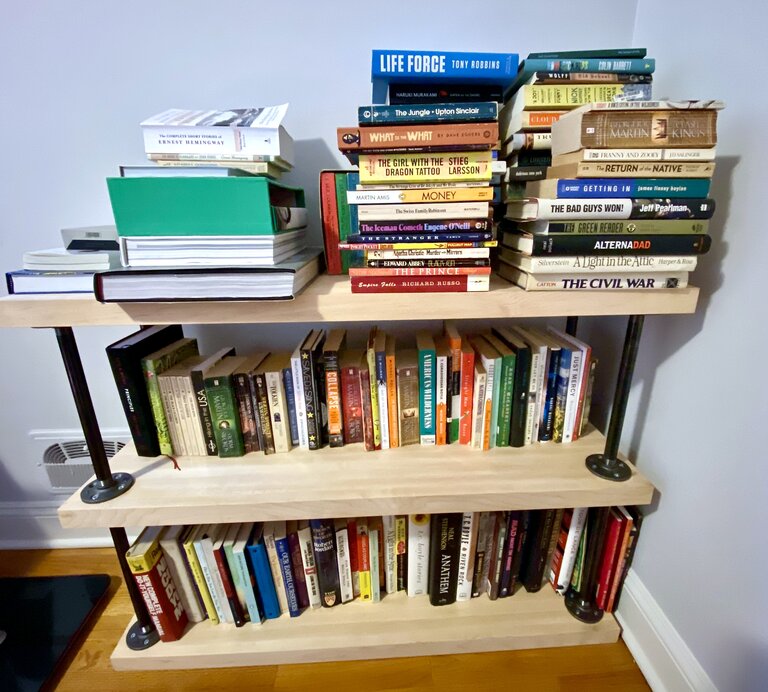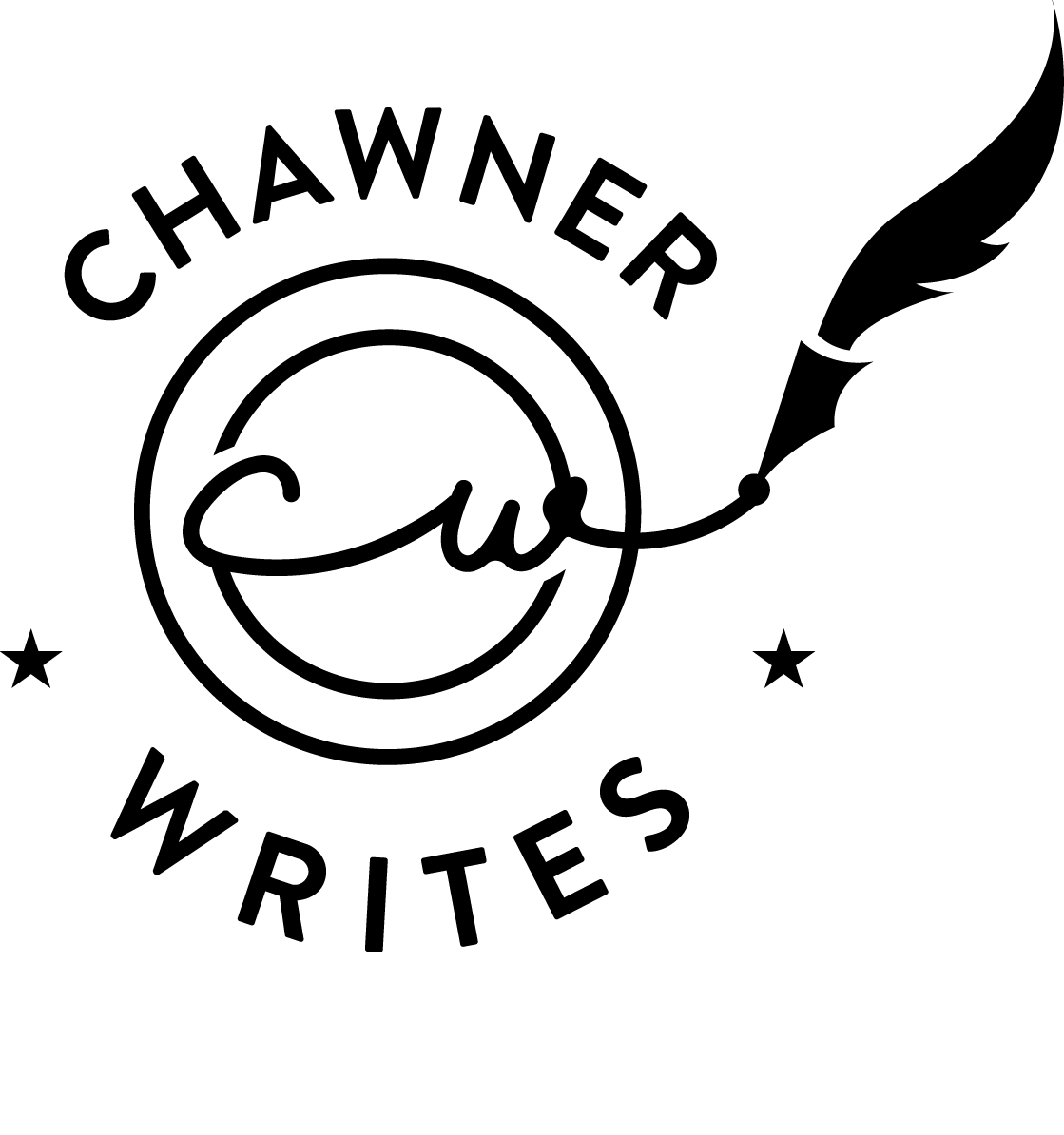
Last year, I built a new bookshelf for my office. When I redid my office a few years ago, we picked up these wonderful, plain, perfectly sized bookshelves my wife painted. I’d assumed I could buy more when needed. As my book collection grew and we got rid of shelves from downstairs, I required more space. Unfortunately, the retailer I bought them from doesn’t stock them anymore and I can’t find them online, anywhere. Amazing how hard to find unadorned, seven-foot shelves.
So I built my own. I previously built my desk and side tables using fantastic butcher block and black pipes. Rather than trying to match the other shelves, I matched this furniture.
Pretty simple to make. It’s two and a half feet high and the stacks on top are eye-level while at my desk. I pay attention to these books more than the books on my older, more traditional shelves. The bigger, bolder spines keep leaping back into my attention. And most of them don’t deserve the headspace. In fact, most of my favorite books are smaller paperbacks. This got me thinking about organization.
Aesthetically, organizing by size or color makes sense. I’ve seen this method used in a few bookshelves, in an online picture in a hyper-stylish room. I’m not wired that way. I’m not color blind, but colors and their combinations don’t jump out at me like they do for others. Arranging by size, however, would let me see smaller titles. For instance, I’m trying to find Dubliners by James Joyce… I believe my copy is a thin, white paperback. But I can’t find it amongst the larger books.
Organizing by size seems sterile. One of the nice things about a shelf of books is the lack of uniformity. There are two schools of thought. One is dusty, leather-bound volumes neatly arranged in a row. The other is the overcrowded NYC apartment with bookshelves crammed with different shaped and colored books. I don’t have any collections, we will default to the second choice.
A logical way to organize them is by author or topic. I have clusters of Hemingway’s, Mitchell’s, Gibson’s, Murakami’s, etc. … but they are exceptions. Most books and authors are one and done. And topics seem hazy and very open to interpretation… does a book of Poe short-stories go in a collection of literature, or short story collections, or horror (I don’t read horror, so probably not. But still)
We will default to grouping by type. Authors clustered together, books on writing, books on health and fitness, stoicism and meditation, etc, etc. Still , it should be fun. And help me find the books I want, and highlight better books. No need to look at cheap Tony Robbins books when I can think about Nabokov.
Addendum: should I continue to hold on to books I either didn’t like or didn’t read? There are three categories of books that I haven’t read on my shelves: books that were aspirational reads (like The Odyssey or The Origin of Species), books that I wasn’t ready to read but are probably quite good (Master and Margarita, Molloy), and books that are just bad (Million Dollar business, The Alchemist). The first two categories I might read or reference one day, but there is no excuse for holding on to the third category.
